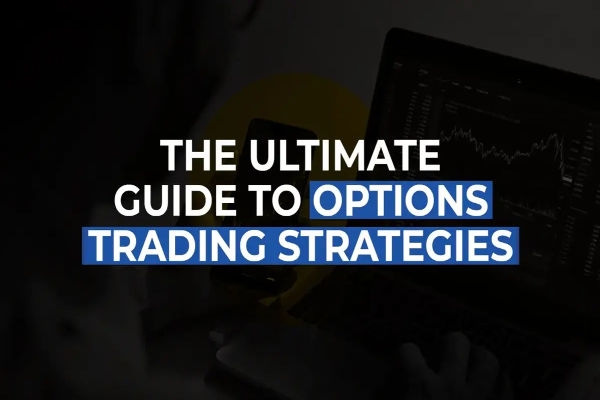Investing in stocks can be a great way to build wealth over time, but before you dive in, one important question to ask is: how old do you have to be to invest in stocks? While the concept of investing is straightforward, the legalities surrounding the age at which someone can begin trading are a bit more nuanced. Whether you're a curious teenager interested in managing your own investments or a parent hoping to teach your child about money, it's essential to understand the rules, the age requirements, and how to go about investing at a young age.
Understanding the Legal Age for Stock Investment
The first thing to note is that there is no single, universal age at which someone can start investing in stocks. Instead, the age requirement is determined by the country's laws and the brokerage firm's policies. In the UK, for example, the minimum age for opening a trading account is typically 18. However, that doesn't mean that younger individuals can't invest at all – there are options available for those under 18. such as custodial accounts or investment accounts managed by parents or guardians.
In the UK, as in many other countries, the law requires you to be 18 or older to open an individual brokerage account. This age limit is in place to ensure that individuals are legally recognised as adults, capable of making financial decisions. But for those younger than 18 who are eager to start investing, there are still ways to get involved in the stock market with the help of an adult.
 The Role of Custodial Accounts
The Role of Custodial Accounts
For minors, one of the most common ways to start investing in stocks is through a custodial account. A custodial account is a type of investment account where a parent or legal guardian acts as the custodian, managing the account until the minor reaches the age of majority (usually 18 or 21. depending on the country).
With a custodial account, the parent or guardian maintains control over the investments and makes decisions on behalf of the minor. However, once the minor reaches the age of majority, they take full ownership of the account and can continue managing it independently. This allows young people to begin investing in stocks under the supervision of a trusted adult, while also gaining exposure to the world of investing early on.
The great thing about custodial accounts is that they are a way to introduce children or teenagers to the concept of investing before they're old enough to manage an account on their own. Through these accounts, they can learn about stock market fundamentals, the importance of diversification, and how to track their investments. This early exposure can be incredibly valuable, as it helps to build good financial habits that will serve them well as they grow older.
Investment Accounts for Young Adults
Once you reach the age of 18. you can open your own investment account without needing a custodian. At this point, you're legally an adult and have the freedom to make your own investment decisions. However, even at this age, it's essential to have a clear understanding of investing basics before jumping in.
For young adults, the best way to start is often with a basic brokerage account, which is a type of investment account where you can buy and sell stocks, bonds, mutual funds, exchange-traded funds (ETFs), and other financial assets. Some brokerage firms also offer special accounts designed specifically for beginners, with easy-to-use interfaces, educational resources, and lower fees.
It's important to remember that while 18 is the legal age to start investing, it doesn't mean that everyone should dive into the stock market immediately. Beginners should start by learning about different types of investments, understanding risk, and setting financial goals. Once you have a solid foundation, you can begin making informed decisions about where and how to invest your money.
The Benefits of Starting Early
The most significant advantage of starting to invest at a young age is the power of compounding. Compounding refers to the process by which your investment earnings (interest, dividends, capital gains) are reinvested to generate even more earnings. The earlier you start investing, the more time your money has to grow.
For example, if you invest £1.000 at the age of 18 and earn an average annual return of 7%, your investment could grow to over £5.000 by the time you reach 60. However, if you wait until you're 30 to start investing, that same £1.000 would only grow to about £3.000 by the time you're 60. The key takeaway here is that starting early gives you a significant advantage when it comes to building wealth over the long term.
In addition to compounding, early investing also provides the opportunity to learn by doing. By engaging with the stock market early, young investors can get hands-on experience, learning about market fluctuations, risk management, and asset allocation. This practical knowledge can make you more confident as you continue to increase your investments in the future.
Is It Ever Too Early to Start?
While the minimum legal age for investing is typically 18. there's no age at which it's too early to start learning about investing. In fact, teaching young children about money and investing can be incredibly beneficial. There are many resources available that can help introduce kids to the basics of personal finance, whether that's through books, games, or apps designed for financial education.
For children under 18. the focus should be on education rather than active investing. Teaching kids how savings, investing, and budgeting work can lay a solid foundation for financial literacy, so they are well-equipped to start managing their own money once they reach adulthood. If you're a parent or guardian, this might involve guiding your child in setting up a savings account or showing them how to track different types of investments (such as stocks or bonds).
What About Investing in Stocks at a Young Age?
Once you're able to start investing (either through a custodial account or at age 18), there's no need to rush into buying individual stocks. A good approach for beginners is often to start with index funds or ETFs. These funds allow you to invest in a diverse group of stocks, which reduces risk compared to buying individual stocks. As you gain more experience and confidence, you can begin to explore individual stocks, but the key is to start slow, learn the ropes, and build your knowledge over time.
One of the biggest mistakes that new investors make is chasing quick profits or putting all their money into one or two stocks. Instead, a more prudent approach is to start with smaller amounts, practice patience, and focus on long-term goals. Over time, your understanding of the stock market will deepen, and you'll become more skilled at making sound investment decisions.
Disclaimer: This material is for general information purposes only and is not intended as (and should not be considered to be) financial, investment or other advice on which reliance should be placed. No opinion given in the material constitutes a recommendation by EBC or the author that any particular investment, security, transaction or investment strategy is suitable for any specific person.


 The Role of Custodial Accounts
The Role of Custodial Accounts



